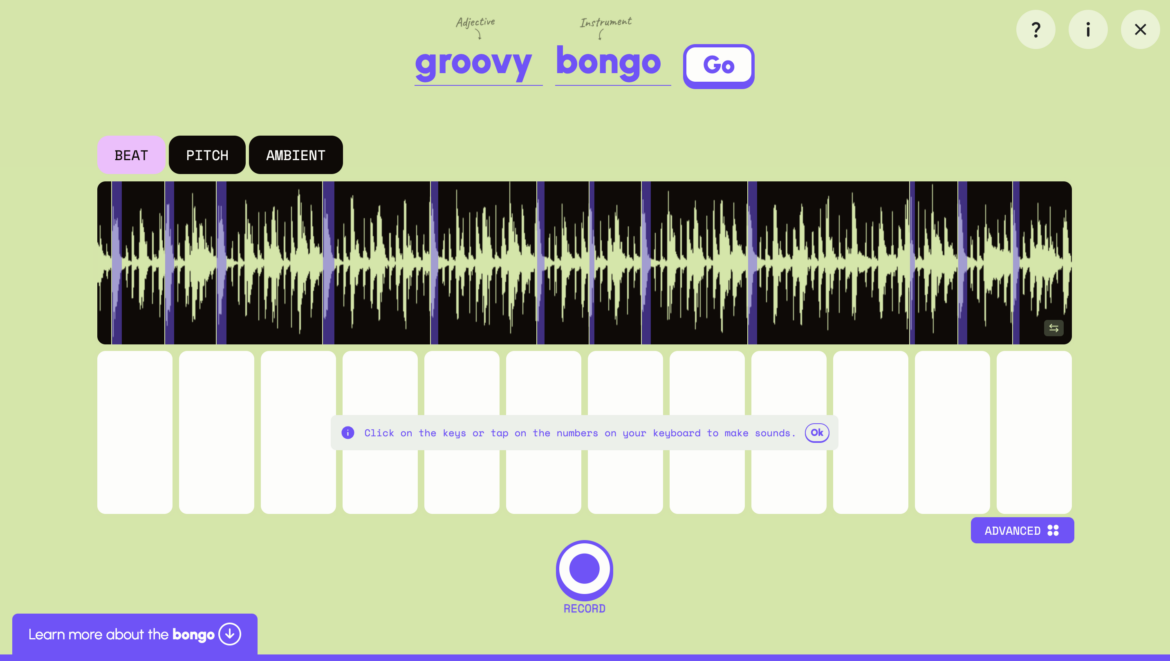Did you like Google’s Blob Opera? Or Blob Beats? Both are tools that make interacting with sounds fun and easy. Take a moment to explore a new addition to Google’s shop of digital musical tools. Allow me to introduce you to Instrument Playground, a new Google Arts & Culture experiment. It offers an interactive instrument space where you can explore various AI-generated sounds.
Introducing Instrument Playground
Unlike other AI-powered tools, Instrument Playground empowers you to mix words and instruments. Google describes it in this way:
Instrument Playground is an experimental tool. It uses MusicLM, an experimental technology. MusicLM allows you to generate your own synthetic music for inspiration.
If you have some background in music, you can type in the name of an instrument along with an adjective to personalize your sound:
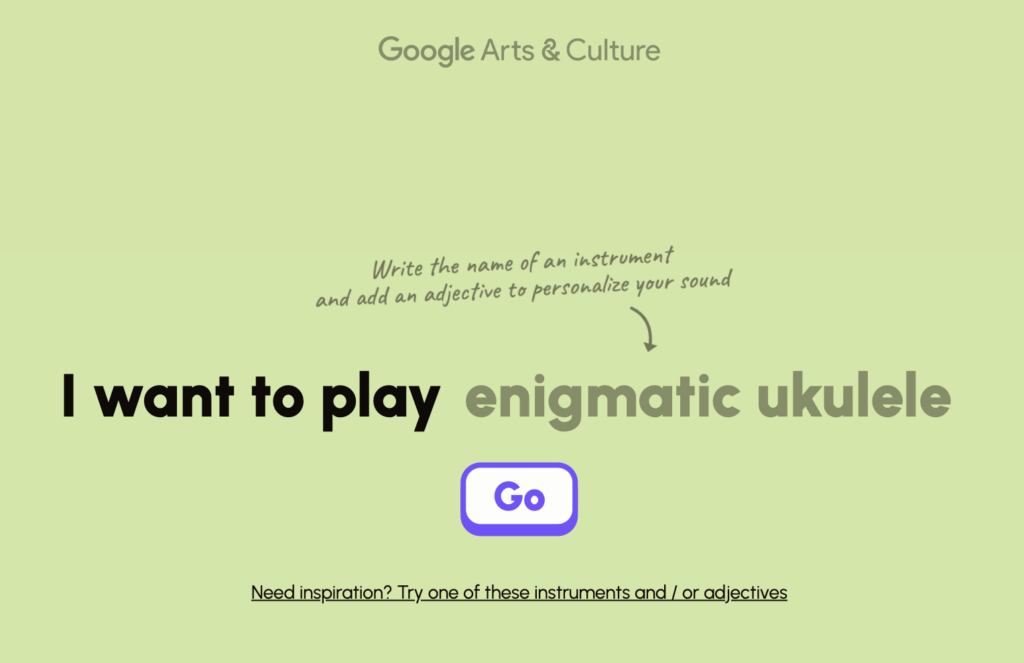
Types of Instruments
Although I grew up trying to learn how to play music, I only experimented with a few instruments. Those included a guitar, an organ, a flute, and a recorder. I always wanted to play crazy bongos or maniac maracas, but my musical talent was lacking. Google’s Instrument Playground offers sixty-five different instruments. To access the list of instruments, click the “Need inspiration? Try one of these instruments and/or adjectives” link below the Go button.
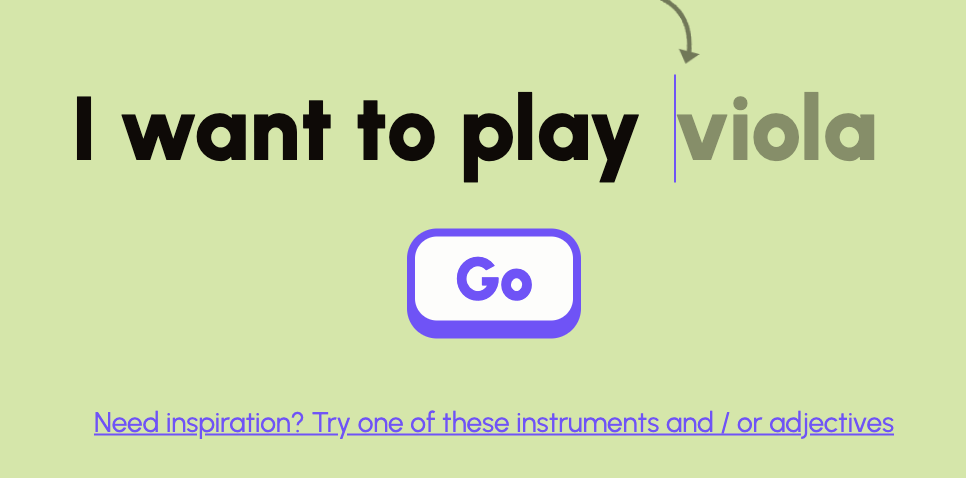
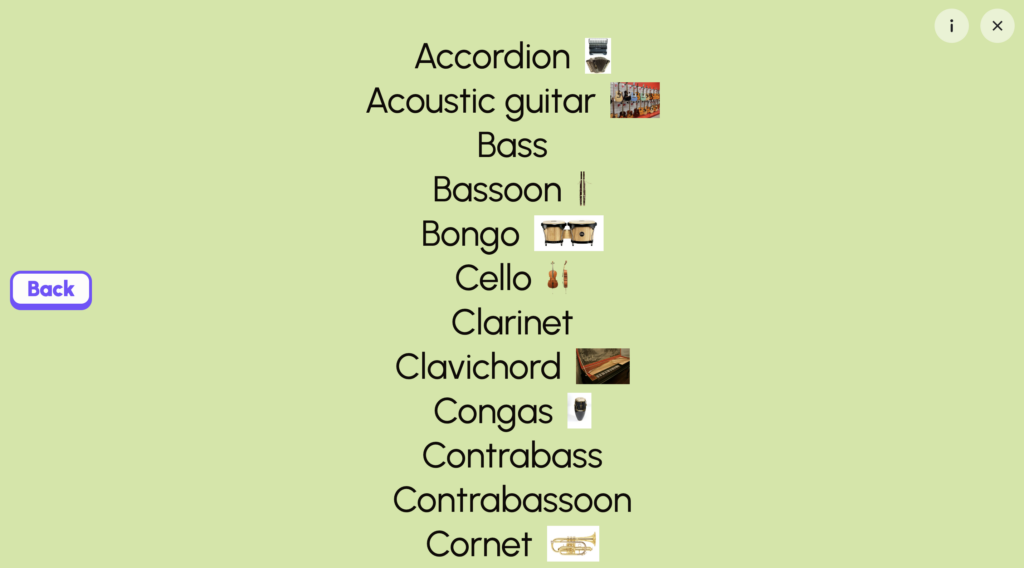
After you choose the type of instrument you want to experiment with, you can select an adjective. And, you won’t need a thesaurus to look up adjectives if your imagination misses a note.
Matching Instrument to Adjectives
Are you asking yourself, “What would Raw Bongo sound like?” Well, you can get a list of adjectives from Google matched to your instrument of choice. Here are some options Google offers for bongo:

Choose an instrument, match an adjective, and discover what’s possible. In case you are wondering, that’s a total of 4,745 possible combinations! Once you have selected your instrument and adjective, Google will use AI to create your sound.

Once your sound is created, you can have fun learning more about the instrument you chose by clicking the “Learn more” tab in the bottom left corner of the page. You’ll find information about your instrument along with additional articles and sources.
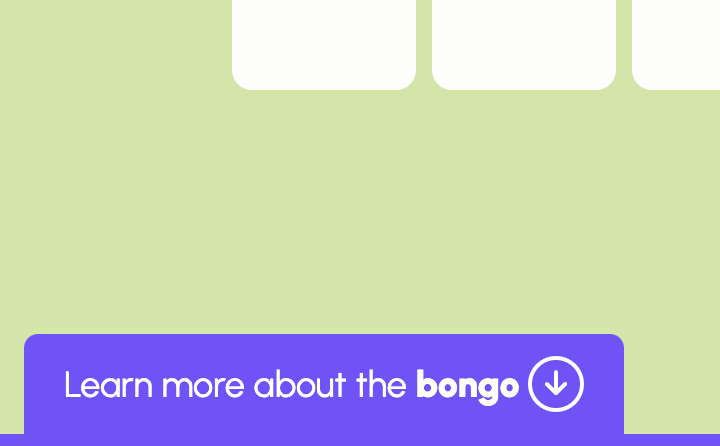
Bongos (Spanish: bongó) are an Afro-Cuban percussion instrument. They include a pair of small open bottomed hand drums of different sizes. The pair consists of the larger hembra (‘female’) and the smaller macho (‘male’). A wooden bridge joins these two hand drums. You play them with both hands. They are held between the legs, but can also be played with sticks or mounted on stands. source
A Unique Sound: Groovy Bongo
As you can see, I went with “groovy bongo,” hearkening back to my misspent youth. You can play with your AI generated instrument, adding adjectives. Each adjective you add affects the sound of the instrument.
Once AI generates the twenty-second-long sound, you can make more changes. There are three adjustable components. Here are the quoted explanations from Instrument Playground’s walkthrough:
- Beat. “This slices the audio automatically to find the most interesting peaks. Each key plays a different slice. You can change the length and location of the slice by dragging and dropping.”
- Pitch. “This mode picks one slice which is transposed per key. You can change the length and location of the slice by dragging and dropping.”
- Ambient. “This relies on granular synthesis, a sound processing technique. This technique involves chopping up a piece of audio into tiny samples. By playing the keys, you navigate within the audio file and generate new sound textures.”
Instrument playground also offers an advanced mode. This mode gives you access to your sequencer and allows you to add up to four more instruments. At this point, I would love to provide a link for you to listen to my groovy bongos. But since I never quite learned to play a musical instrument, read music, or anything like that, oh, well.
A Google Arts & Culture Bonus
I know. You’re disappointed. You were hoping to listen to an original Miguel van Guhlin piece titled “Ode to Ed Tech.” Instead, take a moment to play around with Viola the Bird. This Google Arts & Culture music creation puts a cello in your hands!
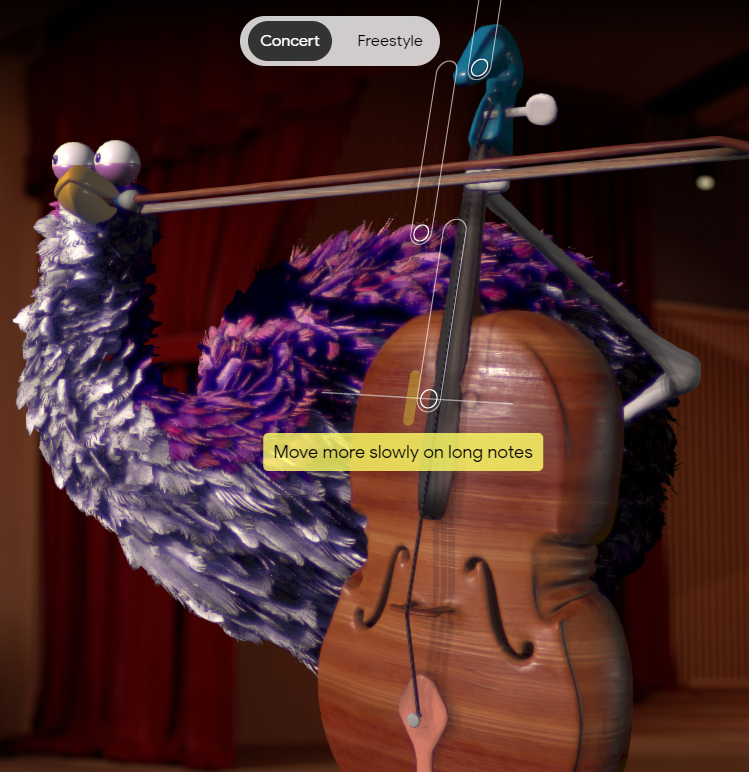
A Finale
Google’s Arts & Culture continues to try to bring musical tools to the table. But those with a note of talent will find music tools like Viola the Bird, Instrument Playground, Blob Beats, and Blob Opera a joy. Each tool offers a unique experience for users to explore and interact with music in exciting ways. Instrument Playground empowers users to personalize their musical compositions by combining instruments with descriptive adjectives. These tools showcase Google’s commitment to music lovers, novice musicians, and experts alike.

